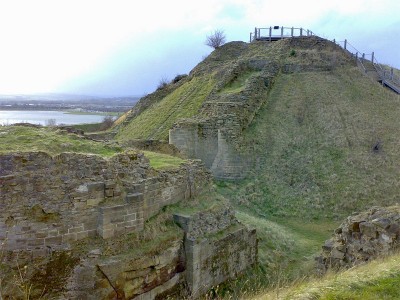The Council of the North

The remains of the motte and barbican at Sandal Castle.
© Wikimedia commons (attribution: Abcdef123456)
Associated people
Associated institutions
Dates
1472 - 1641Description
The Council of the North was created in 1472 by Edward IV as a base for royal authority to be communicated in the north, with permission to issue letters in the king’s name. From 1472 until his accession to the throne, Richard was the first Lord President of the Council of the North.
It was possibly later intended by Richard to be the council of Edward of Middleham, as Richard’s heir, but with the death of Edward in April 1484, Richard institutionalised it as a formal branch of the royal council proper under the presidency of John de la Pole, earl of Lincoln (nephew and probably new heir).
The council was based at Sandal in Yorkshire. In June 1484 Richard visited Sandal and authorised the building of a new tower in the castle, and in October a new bakery and brewhouse. The council was in residence by 20th July 1484 and sessions were held at York. Regulations for the castle were issued in July 1484. It was to meet at least quarterly at York, preferably with every member present.
The main responsibilities were to keep the peace and punish lawbreakers. The council’s budget was 2,000 marks per annum and issued regulations which meant that councillors had to act impartially and declare any vested interests, and also meet every three months at least. It was essentially an autonomous branch of the king's council.
The Council of the North was perhaps Richard's most enduring monument, for its jurisdiction and procedure remained largely intact until 1641.
Sources
July 1484 regulations of the Council of the North
K. Dockray, Richard III: A Sourcebook (Stroud, 1997), p. 108.

